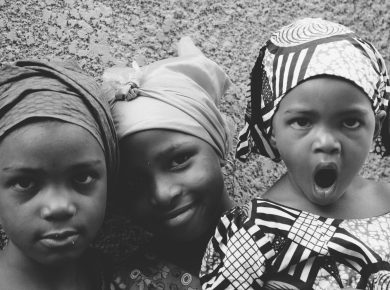Akinpelu (1981) refers to philosophy as an academic discipline which is characterised by logical and systematic thinking. To arrive at conclusions that are sound, coherent, and consistent in all ramifications, the scholars must engage in logical and systemic thinking. According to Akinbote et al. (2001), Philosophy helps us to be rational in our thinking and consequently in our views as individuals or as a group. The article examines the impact of Primary Education on Early Learning.
Philosophers are always conscious of their actions. They do not allow their personal emotion and interests to interfere with their discussion or reaction to events or issues. They are always objective in their dealings.
Bamisaye (1991) sees the philosophy of education as a discipline which is concerned with the critical examination of problems and issues and the setting of goals for education. In other words, the Philosophy of Education helps us to look at various educational issues, problems objectives to arrive at conclusions that will benefit every citizenry and society in general.
Philosophy of Primary Education is the critical examination of issues or problems relating to the theory and practice of primary Education. After the identification, the solutions to these problems are now applied to solve them, which will, in turn, bring development that will benefit individuals and society.
With the knowledge of the Philosophy of Education, the teacher will be able to understand the needs of the child in the classroom and how to use suitable methods to meet these needs to achieve the objectives of education. In other words, the teacher will be in the right position to contribute to any discussion concerning the education of the child objectively.
Aims of primary education in Nigeria
The purpose that primary education can or should serve in a country can be categorised into four-social, political, economic, and cultural. The areas of emphasis may vary from one country to another. For example, in Nigeria, the areas of emphasis are reflected in the goals of primary education, which are stipulated in the National Policy on Education. They are reproduced below for the reader to classify into the appropriate groups:
- To prepare children for life
- To enable the child to communicate effectively in English and their mother tongue.
- To achieve permanent literacy and numeracy, i.e. reading, writing, and counting.
- To prepare a child for future education after primary education.
- To promote effective citizenship through civic responsibilities.
- To develop the child’s sense of beauty and appreciation of his cultural heritage through music, Art, and Literature.
- To create scientific and technological awareness in children.
- To enable the child to cultivate self-discipline, strong moral character, and a sense of spiritual values.
- To cultivate in the child a love of work and the dignity of labour and a readiness to engage in socially and economically useful activities.
- To cultivate in the child the spirit of national consciousness so that he could eventually take his place as an active and sensible member of society.
- To enhance the physical, mental, and emotional growth of the child.
- The inculcation of permanent literacy and numeracy, and the ability to communicate effectively.
- The laying of a sound basis for scientific and reflective thinking.
- Development in the child the ability to adapt to his changing
- Providing basic tools for further educational advancement, including preparation for trades and crafts of the locality.
- Giving the child opportunities to develop manipulative skills that will enable him to function effectively in society within the limits of his capacity.
Achieving the aims of primary education
- A child can be prepared for life through the teaching of various subjects in primary schools.
- National consciousness is made possible in the child through the teaching of our past and present national heroes in social studies.
- The teacher can develop pupils’ creativity and appreciation of beautiful things through the teaching of Arts, Crafts, and Music.
- Effective communication with the child could be achieved by teaching both foreign and local languages.
- Scientific and technological awareness could be achieved by introducing science subjects in primary schools.
The goals of primary education
The goal of primary education in Tanzania is more concerned with children in rural communities. This is probably based on former President Nyerere’s philosophy of education for self-reliance. The aims of primary education in Tanzania are reproduced below from Nwagwu (1978).
- Preparing children for life and service in the villages and rural areas of the country.
- Fostering the social goals of living and working together for the common good of the people.
- Preparing our young people to play a dynamic and constructive part in the development of a society in which all members share fairly in the good or bad fortune of the group, and progress is measured in terms of human well-being.
- Emphasising cooperative endeavour as opposed to individual advancement, thus stressing the concepts of human equality and the dignity of man.
- Encouraging in the children the development of an enquiring mind, the ability to learn from others and to reject or adapt the learning of their own need; a basic confidence in their position as a free and equal member of society.
Conclusion
Primary education was introduced by the Christian Missionaries to some parts of Yoruba land in 1942 during their evangelisation activities. In other words, the beginning of Western (Primary) education. Nigeria could be rightly said to be for religious and not necessarily for any social, political, economic, or academic purposes. In fact, for the forty years of complete missionary control of education (1842-1882), they did nothing to promote secondary education. This was probably due to the belief that higher education was superfluous and might in a way constitute an obstacle to their work of evangelisation by making the higher education products not only very materialistic but also intellectually arrogant (Fajana 1976).
Whatever the weakness of the Christian Missionaries in the field of education, it is to their credit that, within their limited resources, they introduced formal education, which produced notable leaders among the people and laid the foundation for the present-day education developments.
From the aims of primary education listed above, it would seem as if primary education is generally designed to cater for the whole society and not just a segment of it. Read further on this page.










